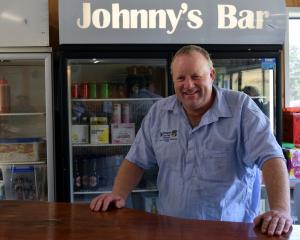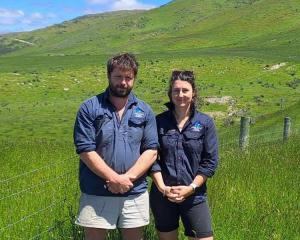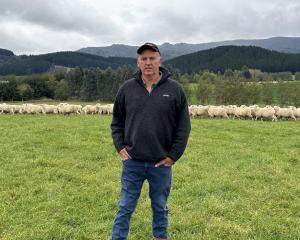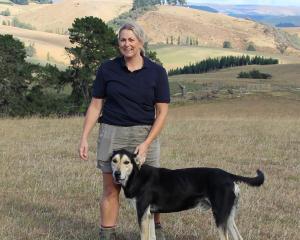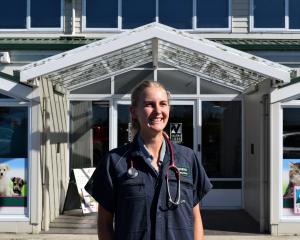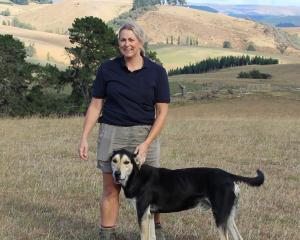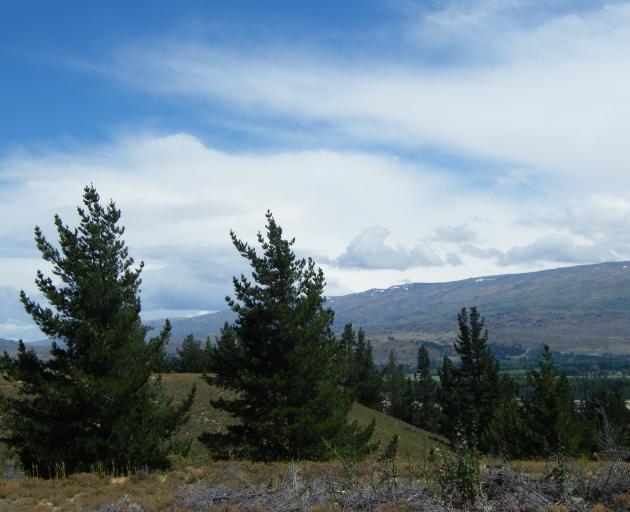
Mr Douglas, the regional policy adviser for the high country section, has retired from the rural lobby organisation.
While he officially finished today, he cleared his desk on January 23 which marked an exact 25 years of service.
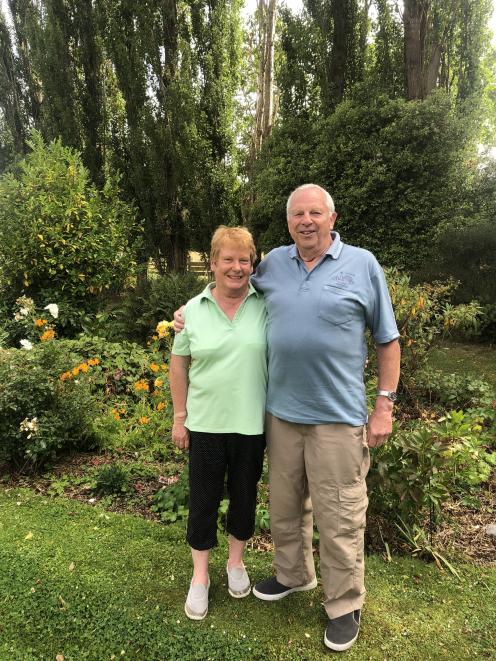
‘‘The kids just started school and we were just settling in. Having to move from one end of the country to another was frustrating.’’
Mr Douglas left the bank when he was in Invercargill and joined the local power board in Timaru. But why Timaru?
‘‘Marilyn’s parents were in Oamaru so it was close enough to be handy . . . but not too close.’’
Working for the power board for 13 years, he saw gradual changes in the electricity industry.
‘‘I started as an auditor that progressed to being their communications person. We needed to put the story out about the supposed efficiency of power companies. They were going super efficient, no longer managed by government departments.’’
But with change came fear of losing his job and he started looking elsewhere.
The the experience he had in publicity, communications and public relations — he had been working freelance for mainly the Timaru Herald doing their farm review — ‘‘stood me in good stead for when the Federated Farmers job came up’’.
In December 1994, he applied for a job at South Canterbury Federated Farmers ‘‘as their chief executive officer ... although I can’t remember the exact title. I thought it was a bit too grand anyway,’’ he laughed.
South Canterbury, Mid Canterbury and North Canterbury provinces worked together very well. But there were other areas that were trying to survive alone. The national structure was not as strong as it could be.
‘‘The powers that be decided it would be more efficient that all the staff employed by separate provinces were put together, setting up a wider structure throughout New Zealand.’’
At that time North Canterbury did the secretary work for the high country section. Under the national structure, one of his new jobs was doing policy work for high country. As time progressed, he became the national industry manager, as well as for the high country.
After several structural changes, Mr Douglas decided to think about what he might do if he retired, stepping down from bee and goat industry work and taking on a supposed three-day work week.
‘‘I was advised that it means you work six days a week, only getting paid for three. So for that last 10 years I’ve been doing ‘three’ days a week. Two years ago my manager decided I wasn’t working three days a week and got Angela Johnson sent down for a gradual changeover.’’
Ms Johnson will be taking over his position at the end of the month.
The high country was put under the regional policy seven or eight years ago and that then got him involved in other districts, including Waitaki, Central Otago and Queenstown Lakes. The job morphed a lot from what it was originally meant to be.’’
When it comes to achievements, Mr Douglas has some standouts.
‘‘I’m quite proud of my work in biosecurity because of the effect biosecurity has on high country properties in particular. A lot of farmers are not aware of the importance of their own farm biosecurity. Mycoplasma bovis is an example of some farmers being a little bit too relaxed. I’ve spoken to farmers as stock trucks come on to their properties, I ask them simple questions about what property it had been on beforehand and they say ‘I don’t know’’.
Through the high country he took quite a few protests to the Government to try to get issues handled on a national basis. The first thing was rabbits.
‘‘Some properties were spending $100,000 a year on controlling rabbits and were losing the battle. These people needed some help. How about some government money?’’
That got them all shaking but led to a national inquiry from [former agriculture minister] David Carter.’’
The feedback he got was that the Department of Conservation did not appear to be pulling its weight as far as pest control was concerned. Setting up a national investigation resulted in a change in the New Zealand Bio Security Act.
Government departments must now comply to the same pest management controls as any land owner.
‘‘That certainly was a major change in government thinking. It was a combined effort from the high country executives and we were quite proud of that.’’
Wilding pines were the next problem to tackle.
Again, high country executives were getting agitated. Wilding trees were spreading all over high country.
‘‘We kept knocking on government’s door. There had been two research projects finding that if the wildling problem wasn’t addressed in the Mackenzie Basin within 20 years — the permanent flow of the Waitaki [River] at the Kurow bridge would be reduced by 50 cumecs that would virtually stifle the electricity production.’’
‘‘The last budget we got was $21million and the government assistance we needed. That all started after a few beers on a high country field day,’’ he laughed.
Mr Douglas said freshwater was a national problem facing farmers.
‘‘Some of the nutrients in water are historical. There are places in Waimate, bordering dairy land, where the water is clear as anything. There are places in back country behind Ashburton where water is coming straight off Doc land, there are no farmed animals ... and the water quality is already beyond government guidelines. So you have stuff in nature ... affecting water. Blaming dairy farmers is ridiculous.’’
Retiring may be hard for some but Mr Douglas seems content with a break, for now.
‘‘If you look around there are few gaps in fences around here. Marilyn retired five years ago and she is quite happy taking up mahjong, croquet and those sorts of things’’ he jeered. ‘‘She’s busier now than when she was working.’’
With a holiday to Barcelona in June, Mr Douglas has a lot to celebrate.
‘‘Marilyn has her 70th this year, we have our 50th wedding anniversary next year and need to plan for that. Eight grandchildren keep us busy. But for now, I think I might sit outside and enjoy the garden for a little while. I have a collection of golf clubs so may head down the road to Maungati Golf Club.’’
-By George Clark


